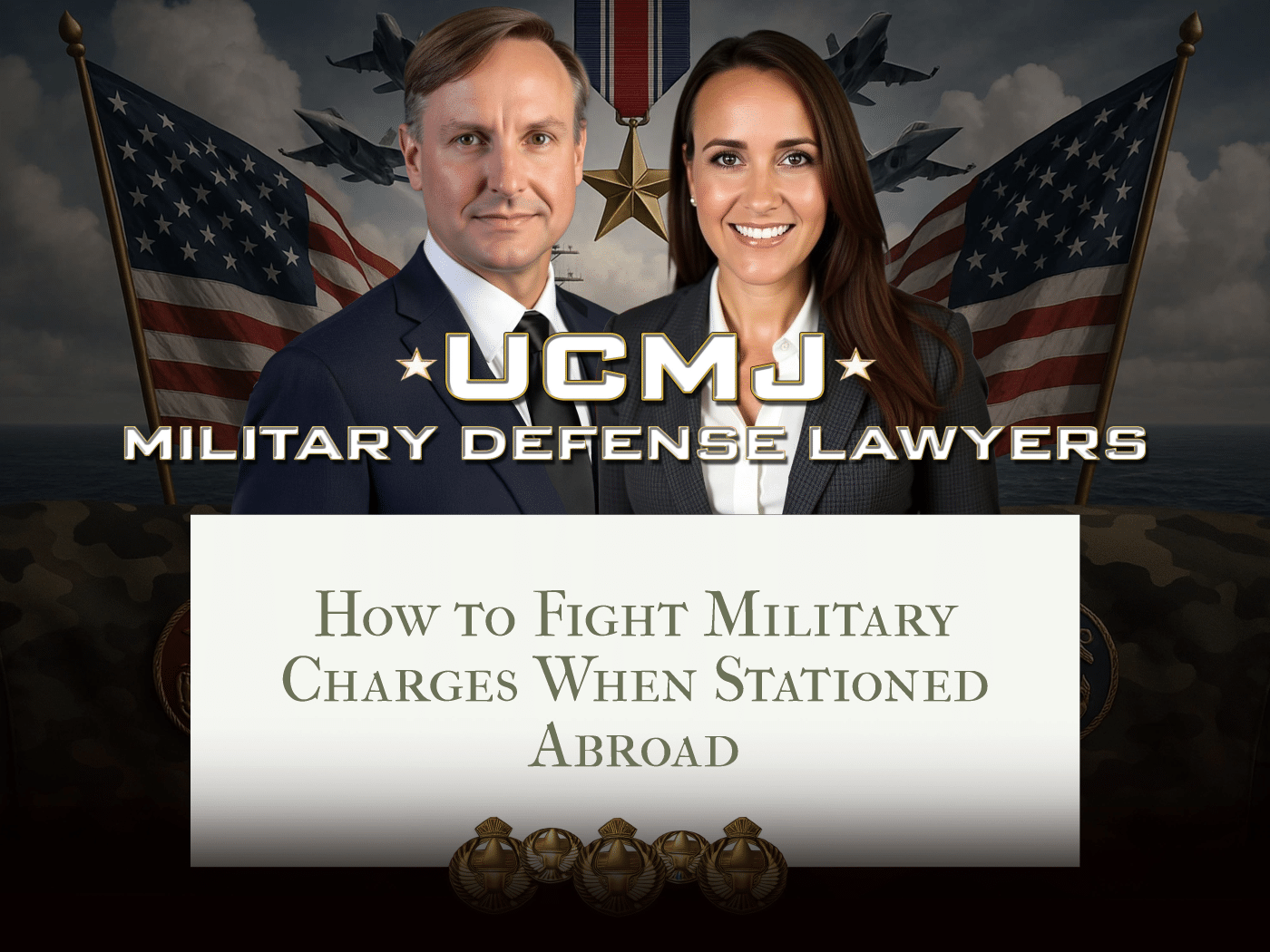Facing a military charge while stationed overseas can feel overwhelming, especially when you’re far from home, family, and familiar legal systems. Overseas Military Defense plays a critical role in helping service members navigate this complex situation. Whether you’ve been accused of a minor infraction or a serious criminal offense, understanding your rights and being proactive is crucial. The legal process within the military justice system is different from civilian law, particularly when conducted abroad. Many service members are unsure where to turn or how to handle accusations that threaten their military careers and personal lives. We understand the emotional pressure you’re under, and our goal is to help you feel more informed and prepared. If you’re dealing with military charges overseas, it’s not just about fighting a case—it’s about protecting your future. With the right defense strategy and experienced advocacy, you can face these challenges confidently and effectively.
Understanding What Overseas Military Defense Means
Overseas Military Defense refers to the legal representation and defense strategies specific to military personnel facing legal matters while stationed outside the continental United States. These cases can range from non-judicial punishments, such as Article 15s, to full court-martials involving serious criminal allegations. Because each country and U.S. military branch follows different procedural rules, effective defense requires someone experienced in international military law and seasoned in working within the Uniform Code of Military Justice (UCMJ).
For example, a soldier stationed in Germany accused of assault during off-base activities may face both military and host-nation investigations. In another instance, a Navy sailor in Bahrain might be accused of violating a general order, triggering a General Court-Martial. These complex environments demand a tailored approach. Language barriers, cultural expectations, and dual legal systems can all add layers of difficulty. Overseas Military Defense ensures service members have knowledgeable advocates to help them navigate administrative hearings, investigations, or trials, even when they feel isolated or uncertain.
Why It’s Crucial to Have a Defense Strategy While Stationed Abroad
The consequences of facing military charges while stationed overseas can be long-lasting and may follow a service member well beyond their deployment. Understanding why effective Overseas Military Defense matters begins with recognizing what’s truly at stake. Without proper legal representation, service members risk not only punitive outcomes but also harm to their careers, families, and reputations.
There are also jurisdictional nuances that make international military charges more complicated. Overseas assignments often involve Status of Forces Agreements (SOFAs), which define how foreign and U.S. legal systems interact. Without a solid legal defense, a service member might unknowingly accept unfavorable terms or waive key rights. Realizing the gravity of these issues early can make the difference between returning home with honor or facing lasting repercussions.
- A Marine in Japan is accused of misconduct off-base. Without strong legal advocacy, they are dishonorably discharged, losing all benefits.
- An Air Force member in South Korea is falsely accused of sexual misconduct. They face trial and severe stigma, despite weak evidence.
- A solider in Italy unknowingly signs a statement in a foreign language. This is used against them in UCMJ proceedings, leading to career-ending outcomes.
How the Military Defense Process Works When You Are Stationed Abroad
- Step 1: When an incident occurs, your command may initiate an investigation by military law enforcement or a command-appointed inquiry officer.
- Step 2: You may be assigned counsel or choose to hire civilian military defense. Evidence will be reviewed, and you may be interviewed or asked to submit documentation.
- Step 3: Depending on the findings, the command might proceed with non-judicial punishment or refer the case to a Court-Martial. Throughout, your defense attorney works to protect your rights and prepare your case.
Top Pro Tips for Navigating Defense While Deployed Overseas
Common Questions Military Members Ask About Charges Abroad
How Gonzalez & Waddington Assists with Overseas Military Defense
At Gonzalez & Waddington, we understand what it means to face military charges while stationed abroad. With decades of combined experience handling high-profile military defense cases around the world, our team delivers aggressive, strategic representation tailored to the unique needs of overseas service members. We provide support in Europe, the Middle East, Asia, and wherever the U.S. military operates.
Whether it’s defending against sexual assault accusations in Germany, representing clients in Korea or Japan, or advising during command-directed investigations, we prioritize your rights and your future. We know that being away from home adds emotional and logistical challenges, so our firm offers consistent communication, comprehensive strategies, and the reassurance that you’re not facing this alone. Our clients benefit from military law expertise, deep familiarity with court-martial procedures, and unwavering dedication to achieving favorable results.



